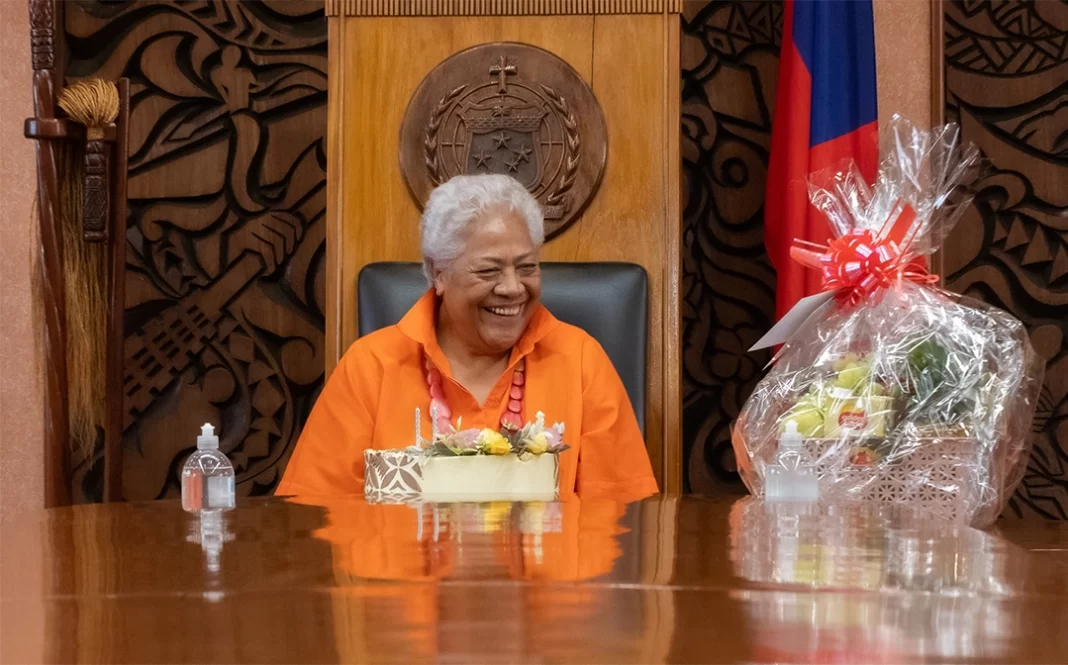Prime Minister Fiame Naomi Mataʻafa celebrated her birthday today, surrounded by members of Cabinet and staff from the Ministry of the Prime Minister. A message from the Government of Samoa extended well-wishes for continued strength and leadership as she remains at the helm of the nation.
Fiame is Samoa’s first female Prime Minister and one of the longest-serving Members of Parliament in the region. She first entered Parliament in 1985 following the death of her father, the late Fiame Mataʻafa Faumuina Mulinuʻu II, Samoa’s first Prime Minister. Her chiefly title, Fiame, is from Lotofaga in the district of Atua, a title of national significance with deep historical roots.
Since beginning her political career, Fiame has held key ministerial portfolios across successive administrations. She served as Minister of Education, Sports and Culture from 1991 to 2006, overseeing major developments in Samoa’s education sector. From 2006 to 2011, she was Minister of Women, Community and Social Development, followed by her appointment as Minister of Justice and Courts Administration from 2011 to 2016. In 2016, she was appointed Deputy Prime Minister while simultaneously holding the portfolio of Minister of Natural Resources and Environment, a position she held until her resignation from the Cabinet in 2020 over constitutional reforms.
In 2021, she led the Faʻatuatua i le Atua Samoa ua Tasi (FAST) party to a narrow election victory. Fiame was sworn in as Samoa’s first female Prime Minister on 24 May 2021, although a political standoff delayed formal recognition until the Court of Appeal ruled in July 2021 that her appointment was lawful.
Fiame has consistently described her leadership as one centred on public accountability, service to the people, and the rule of law. Her tenure has focused on restoring trust in government institutions, addressing climate change, and strengthening regional cooperation.
As Samoa moves toward its next general election, expected in April 2026, the FAST government is facing mounting pressure over internal disputes, public spending, and leadership cohesion. Several former FAST MPs have crossed the floor or declared independence, raising questions about the party’s ability to maintain its majority.
Despite the turbulence, Fiame remains one of the most respected political figures in the country and across the Pacific. The coming year is expected to test both her leadership and the unity of the FAST movement.





